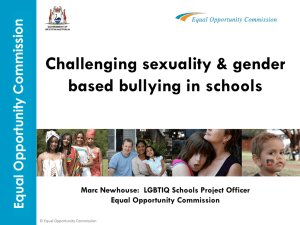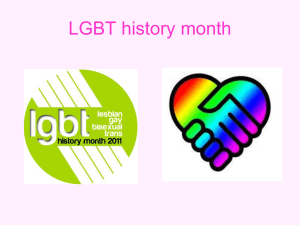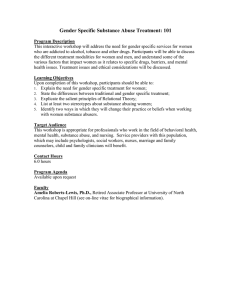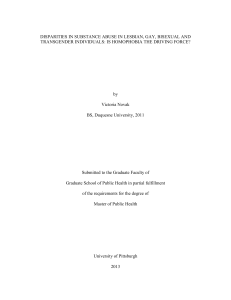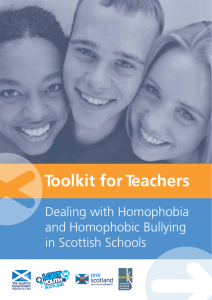Adjunct Associate Professor Lynne Hillier Transcript
advertisement
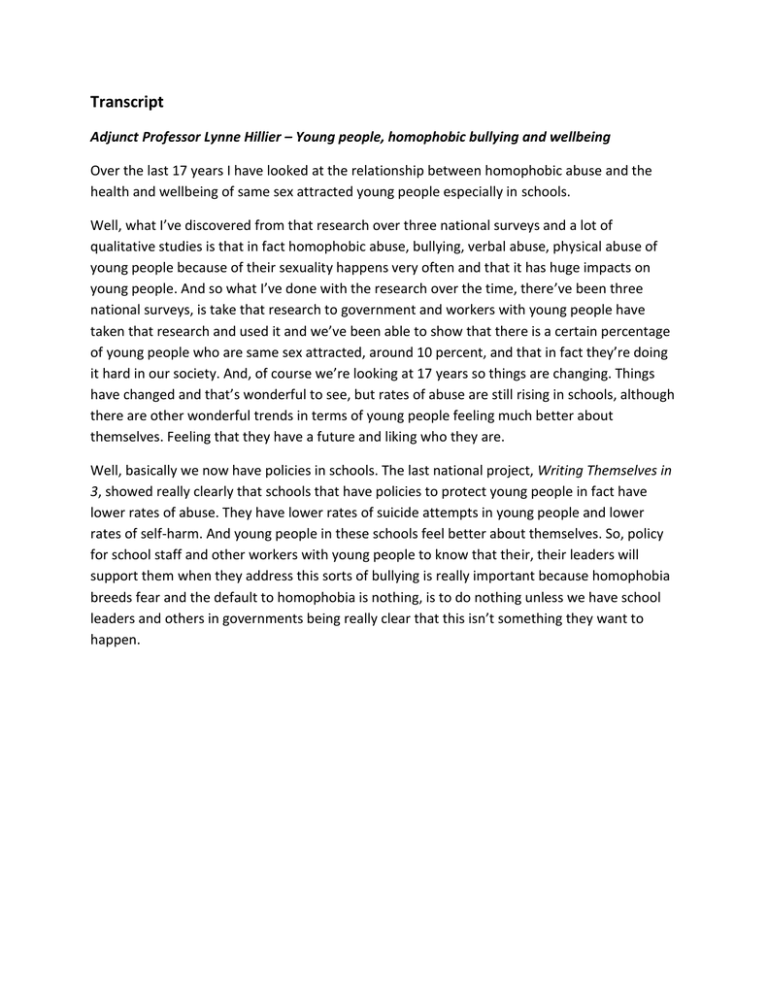
Transcript Adjunct Professor Lynne Hillier – Young people, homophobic bullying and wellbeing Over the last 17 years I have looked at the relationship between homophobic abuse and the health and wellbeing of same sex attracted young people especially in schools. Well, what I’ve discovered from that research over three national surveys and a lot of qualitative studies is that in fact homophobic abuse, bullying, verbal abuse, physical abuse of young people because of their sexuality happens very often and that it has huge impacts on young people. And so what I’ve done with the research over the time, there’ve been three national surveys, is take that research to government and workers with young people have taken that research and used it and we’ve been able to show that there is a certain percentage of young people who are same sex attracted, around 10 percent, and that in fact they’re doing it hard in our society. And, of course we’re looking at 17 years so things are changing. Things have changed and that’s wonderful to see, but rates of abuse are still rising in schools, although there are other wonderful trends in terms of young people feeling much better about themselves. Feeling that they have a future and liking who they are. Well, basically we now have policies in schools. The last national project, Writing Themselves in 3, showed really clearly that schools that have policies to protect young people in fact have lower rates of abuse. They have lower rates of suicide attempts in young people and lower rates of self-harm. And young people in these schools feel better about themselves. So, policy for school staff and other workers with young people to know that their, their leaders will support them when they address this sorts of bullying is really important because homophobia breeds fear and the default to homophobia is nothing, is to do nothing unless we have school leaders and others in governments being really clear that this isn’t something they want to happen.


